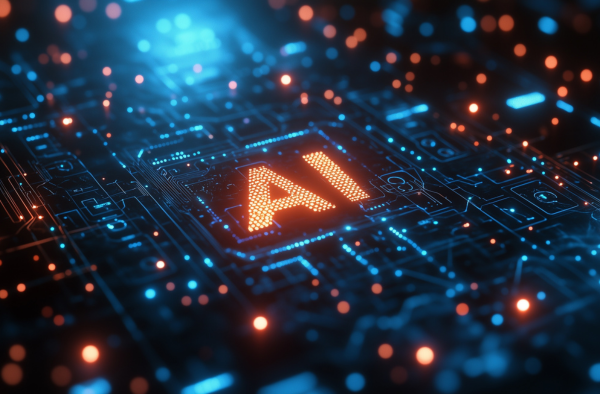Introduction
Cars driving themselves is surely something you never thought you would see 20 years ago, yet here we are in 2025, and this technology is one of the main selling points in many high-end vehicles. Technology continues to advance at an exponential rate, making yesterday’s dreams today’s reality. One technology, which has become colloquially referred to as artificial intelligence or AI, is revolutionizing many aspects of life and is causing major disruption in quite a few industries. Here are the ways in which AI can potentially change the nature of personal injury law and how Femminineo Law plans to take advantage of these new innovations.
Artificial Intelligence
AI has become a buzzword, getting thrown out to describe any kind of new tech within the last couple of years. While the term gets used a lot, few efforts are made to explain what exactly is meant by “artificial intelligence”. Below is a brief discussion of what this term refers to:
Humans have long attempted to rival the beauty and genius of the natural world through the arts and sciences. In many senses, the human brain is a pinnacle of the natural world. It allows for the complex languages, relationships, and behaviors that make humans human. Despite its importance to our existence, many mysteries remain regarding the inner workings of the human brain. It has long been a goal of humans to understand this unfathomably complex machine and potentially harness some of its power in the form of a computer or thinking device. There have been many iterations of thinking devices through the years—a lineage that has ultimately guided us to the age of artificial intelligence.
Although the term artificial intelligence may evoke an image of human-like robots waging war on their creators (like in Blade Runner) the reality is artificial intelligence is nowhere near this level of sophistication. AI actually has its roots in modern computer science and closely parallels the rise of computer usage. The earliest computers were large and cumbersome and were typically intended to solve math equations that were tedious to solve by hand. Over the years these complex mechanical contraptions were refined, electrified, and ultimately improved by the field of computer scientists emerging in American Universities throughout the early 20th century.
Around the 1970’s computers began taking a shape we are familiar with today and advancements in personal computer technology made it possible for everyday people to begin utilizing computers. Following the birth of the internet in the 1980’s, computers have played an increasingly larger role in our lives—allowing us to quickly access information, communicate with others over long distances, and stay informed about any topic imaginable. Just as the internet has had profound effects on our daily lives and behavior, AI may have the same potential for life-changing, industry-redefining impacts. Artificial Intelligence is the most recent advancement in the long history of computer science and is a sort of catch-all term, referring to, “the fields of computer and data science focused on building machines with human intelligence to perform tasks like learning, reasoning, problem-solving, perception, and language understanding” (MTU, 2025). While this still doesn’t define exactly what AI is, some examples of tools built using AI may help you further conceptualize the abstract technology:
- Autonomous driving software
- Chat GPT & other voice assistants / chat bots
- Fake news detection software implemented by Google and Microsoft
- Fraud detection systems used by American Express
All these services utilize the emerging technology of AI to streamline repetitive, tedious human tasks into automated, efficient systems.
Uses Within the Field of Personal Injury Law
As previously stated, AI has completely changed the way certain industries operate and is also in the process of revolutionizing some in real time. Healthcare, cybersecurity, and finance are all industries at the forefront of AI advancement. One sector of employment that may get affected by the rise of AI is legal work. AI is a powerful tool with the potential to change the nature of legal representation permanently by reducing manual workload, improving accuracy, and providing strategic insights. Although the current advancements resulting from AI are not as drastic as in other fields, the possibility for major disruption in the world of law remains.
Chat GPT: One powerful tool currently being used by attorneys is one that has already been mentioned and is probably the most prominent AI tool currently being used: Chat GPT. Chat GPT or Generative Pre-Trained Transformer is an AI chat bot that is designed to provide human-like responses to whatever you prompt it with. This has proven to be an invaluable tool for countless individuals, as it has outperformed google and other search engines in its ability to present users with relevant information extremely quickly. While it cannot replace diligent research and often has quirks and inaccuracies that prevent the information it provides from being citable, it can assist attorneys with quick answers to pressing questions and solid starting points for drafting documents and client correspondence.
Predictive Data Analytics: Outside of the mainstream example of Chat GPT, there are other specialized AI engines that are purposely designed for legal work. Some examples include Premonition, Lex Machina, and Brainspace. One of the main AI capabilities that these services advertise is predictive data analytics. This refers to the use of AI to help make objective decisions based on data.
Data driven thinking is relatively new to the legal world but has long been a talking point within the world of sports. From the Oakland Athletics iconic Moneyball strategy, to Dan Cambell’s go-for-it-on-fourth Lions, insights based on data have played central roles in many sports success stories. With the help of powerful new AI tools tailored to the legal field, attorneys can make decisions based on data, rather than on intuition or precedent alone. Services such as the ones mentioned above utilize extensive legal databases, pulling information from federal and state courts to give insights into a variety of different areas including:
- Case outcomes
- Timing of appeals and motions
- Decisions reached by certain law firms
- Decisions reached by certain judges
- Decisions reached by certain lawyers
This allows attorneys to be as informed as possible in their decision making and in theory, should lead to more successful litigation strategies.
Client Interactions & Information Summarization: Another use for AI is to assist with client correspondence. Tasks such as writing generic emails and drafting basic contracts can now be handled by AI. This frees up valuable time that would have been spent on repetitive communication and document drafting, allowing attorneys to dedicate more time to strategizing and finding a way to win.
AI also can quickly and effectively summarize complex, jargon-heavy documents into easily digestible nuggets of information that a client without legal expertise can understand. Again, this is a super powerful time savings tool that allows attorneys to focus less on the particularities of how to communicate something to their clients and more on their overall strategy for success.
Voice Transcription: One final way that AI provides value to lawyers and their clients is through voice prompted note taking. Even though taking notes is a skill that most lawyers excel at, capturing all the relevant details of a deposition, facilitation, or meeting with a client can be extremely challenging. However, with the help of programs such as TurboScribe and Trint, note taking is becoming a worry of the past. These programs convert audio and video files into surprisingly accurate transcriptions instantaneously. This means rather than worrying about taking notes (or paying someone else to) an attorney can remain fully engaged in the discussion at hand—ultimately increasing your chances of success.
Conclusion
Here at Femminineo Law, we seek every advantage we can when it comes to securing our clients maximum compensation. With the recent rise in AI technologies and interest in workplace efficiency, David and his team are investigating all the ways we can implement AI into our daily routines, to remain on the cutting edge of innovation within the legal field. As new opportunities to utilize AI arise, rest assured that Femmineo Law will be at the forefront, gaining every small advantage for our clients that we can. If you or someone you know has been injured, tell them to call Femminineo Law at 855-65CRASH or visit our website at getdavidgetpaid.com.



